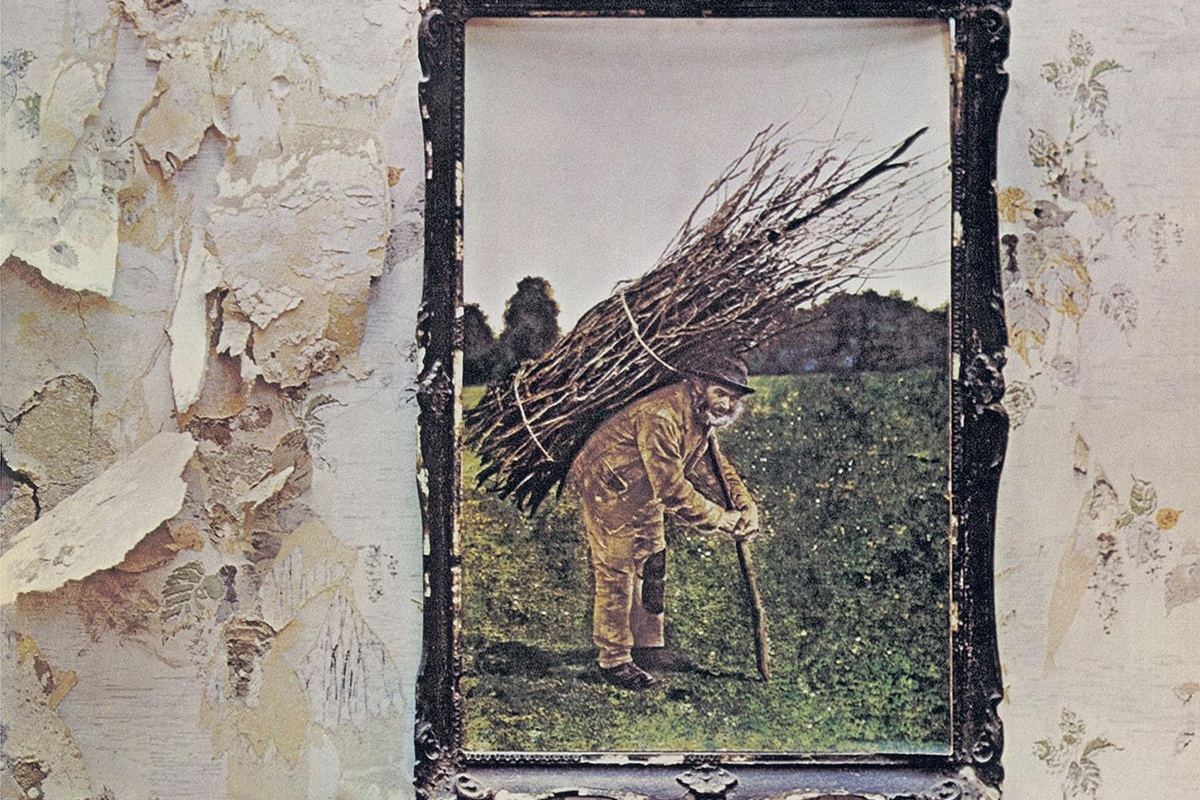
There are great albums, and then there are albums that are so legendary that they are pretty much their own movement. “Led Zeppelin IV” is one of the latter. When it comes to classic rock albums that really coined the genre, it doesn’t get much more influential than “Led Zeppelin IV.”
This album is universally recognized as one of classic rock’s greatest gems and Led Zeppelin‘s best work, combining elements of hard rock, blues and folk to great accord. It doesn’t hurt that “Led Zeppelin IV” also has the band’s most popular song of all time, “Stairway to Heaven,” but even if it didn’t, it would be difficult to argue against it being the band’s strongest album.
Remembering ‘Led Zeppelin IV’
“Led Zeppelin IV” arrived on November 8, 1971, and marked the band’s fourth studio album. Guitarist Jimmy Page produced the album, and the band recorded it in the country house Headley Grange.
While Zeppelin was already a huge band by 1971, “Led Zeppelin IV” was kind of a culmination of everything they had done musically up until that point and made them global superstars.
“The last album of an era, ‘Led Zeppelin IV’ completes a stylistic and atmospheric cycle for the band, who had been doing all the channeling and cultural appropriation the genre required for a while now,” Beats Per Minute noted in a feature about the album’s 50th anniversary. “As egoism and megalomania took their toll on counterculture, roots rock would too become naive at best.”
In Rolling Stone’s review of the album when it was released, music reviewer Lenny Kaye commented on the record being more subtle than past Zeppelin albums.
“It might seem a bit incongruous to say that Led Zeppelin — a band never particularly known for its tendency to understate matters — has produced an album which is remarkable for its low-keyed and tasteful subtlety, but that’s just the case here,” Kaye stated in the piece published on December of 1971. “The march of the dinosaurs that broke the ground for their first epic release has apparently vanished, taking along with it the splattering electronics of their second effort and the leaden acoustic moves that seemed to weigh down their third.”
The BBC also raved about the album at the time of its release, putting the spotlight on what would be the trademark of Led Zeppelin, “Stairway to Heaven.”
“Starting as a recorder-driven acoustic folk ballad, it culminates in its closing minutes as a full-on, much emulated rock classic, with Robert Plant’s vocals and Jimmy Page’s guitar both approaching career-bests,” the BBC stated in their feature at the time. “‘Led Zeppelin IV’ also demonstrates the singular talent that was drummer John Bonham – the blues driven ‘When The Levee Breaks’ is one of the most heavily sampled drum tracks of all time.”
Pitchfork makes the smart observation that pretty much every single off “Led Zeppelin IV” became a radio hit, making it a snapshot of the era. “If you grew up on classic rock radio, you sometimes felt like you were listening to Led Zeppelin’s fourth album on shuffle,” Mark Richardson notes in a 2015 feature about the album. “It has eight songs, all of them are huge, and one, ‘Stairway to Heaven,’ frequently lingers near the top of lists of the ‘Greatest Rock Songs of All Time.'”
It’s rare when a record becomes more than just a collection of songs but actually represents a movement, and that’s the case with “Led Zeppelin IV.” It’s classic rock, in a nutshell. Thank God for albums such as “Led Zeppelin IV,” because there’s no telling what rock music would sound like today without Zeppelin.
- Metallica’s Greatest Songs of the Past 25 Years - October 16, 2025
- Testament, “Para Bellum” – Track-by-Track Album Review - October 10, 2025
- Judas Priest Bassist Ian Hill Talks Metal, Legacy and Ozzy Osbourne – Interview - October 1, 2025
